Philanthropy and Volunteerism: Volunteers
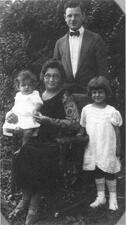
Bessie Abramowitz Hillman
Fanny E. Holtzmann
Fanny E. Holtzmann made waves as a lawyer for stars of Broadway and Hollywood as well as luminaries of world politics such as the Romanoffs.
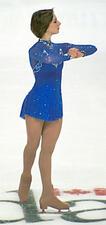
Sarah Hughes
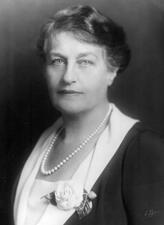
Jewish Museums in the United States
American Jewish women have played an outsized role in the foundation of Jewish museums all over the country. Barred from traditional spaces of power in the early twentieth century, many women—adjacent to power as Rebbetzins, philanthropists, and secretaries of libraries and other Jewish organizations—leveraged their connections to found new kinds of cultural institutions: museums.
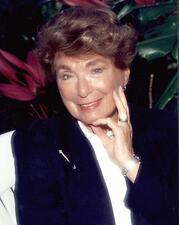
Geri M. Joseph
Geri M. Joseph, a pioneer in the acceptance of women in journalism and politics, was a prize-winning newspaper reporter, an American Ambassador to the Netherlands during the Carter administration, and the first woman to be elected to several business boards in Minnesota.
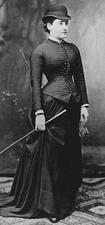
Juedischer Frauenbund (The League of Jewish Women)
Founded in 1904, The League of Jewish Women pursued secular German feminist goals while maintaining a strong sense of Jewish identity. The League supported vulnerable women through practical social reforms while fighting for political power within the German Jewish community. It saw employment opportunities as essential to women’s economic, psychological, and emotional independence.
Carol Weiss King
Esther Loeb Kohn
Esther Loeb Kohn helped bridge the gap between Chicago’s volunteer and professional social workers and spent thirty years running the Hull House settlement whenever founder Jane Addams was away on her frequent travels.
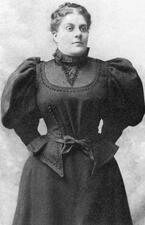
Rebekah Bettelheim Kohut
Ilona Kronstein
Ilona (Ili) Kronstein was an artist and graphic designer. In the 1930s she focused on her artistic training, working first as a graphic artist, before working in her own studio. Her work, which was not exhibited in her lifetime, was rediscovered in the late 1990s and exhibited in Vienna at The Jewish Museum.
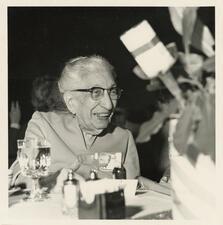
Sara Landau
Sara Landau was an accomplished twentieth-century economist who paired her scholarship with inexhaustible volunteerism in local and national organizations. Throughout her career in academia and service, Landau exemplified a category of economically independent middle-class Jewish women in America who both developed their own careers and devoted their energy to volunteer efforts, especially on behalf of their fellow Jews.
Adele Lewisohn Lehman
Adele Lewisohn Lehman was a significant figure in the history of New York City philanthropy who was primarily involved in causes benefiting disabled people and children. A donor and fund-raiser, she also served as an administrator or board member for many agencies, including the East Side Free School for Crippled Children and the New York Board of Charities.
Jennie Davidson Levitt
Jennie Davidson Levitt, daughter of Jewish philanthropists Saul and Mary (Cohen) Davidson, continued her family’s tradition of activism and philanthropy with her work for Jewish organizations. She helped rescue Jewish children during the war, and later lobbied for better medical and psychiatric services.
Adele Rosenwald Levy
Adele Rosenwald Levy used her affluence to promote public-spirited philanthropy and Jewish causes in the years surrounding World War II.
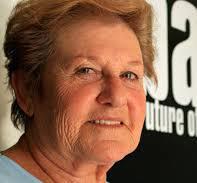
Helen Lieberman
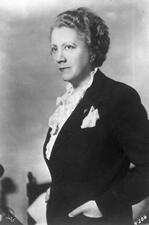
Irma Levy Lindheim
Irma Levy Lindheim was a colorful American Zionist millionaire, fund-raiser, and educator. Called “the grandmother” of the kibbutz for helping found and sustain multiple kibbutzim, Irma Levy Lindheim also made phenomenal contributions to fundraising and organizational efforts to create and maintain the fledgling State of Israel.
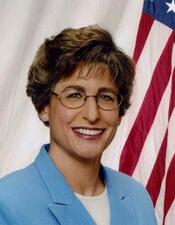
Linda Lingle
Linda Lingle was only the second Jewish woman to be elected a United States governor when she became governor of Hawaii in 2002. Previously serving on the Maui County Council and as Maui’s mayor, Lingle became Hawaii’s first woman and Jewish governor when she was elected.
Johanna Loeb
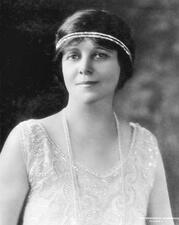
Sophie Irene Simon Loeb
At a time when widowed mothers often had no way to support their children, Sophie Irene Simon Loeb helped create support systems for needy children and their mothers. Loeb was one of many women to enter the political arena through reform work, using her life experience and a personalized approach.
Sadie Loewith
Frieda Lorber
Frieda Levin Lorber made a name for herself as a prominent lawyer in the mid twentieth century and helped other women rise in the profession in New York and worldwide.
Emma B. Mandl
Emma B. Mandl immigrated to the United States at age fifteen and helped found the Baron Hirsch Women’s Club, a major Chicago philanthropic organization. Through the club, where she served as president, Mandl created and led vital institutions for Jewish East European immigrants in Chicago, from orphanages to trade schools to tuberculosis wards.
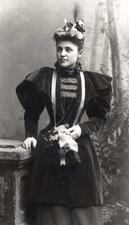
Alice Davis Menken
Alice Davis Menken was an influential social reformer whose many published works had a notable impact on the field of penology. She became interested in delinquency among young female Jewish immigrants while working at a settlement house on the Lower East Side. Menken proceeded to pioneer the argument that therapy, not punishment, is the most effective treatment for young delinquents.
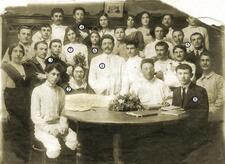
Hephzibah Menuhin
Hephzibah Menuhin was a talented pianist and a dedicated human rights activist. After a successful international career performing with her brother Yehudi, Menuhin worked with her husband to assist the poor, the homeless, and the recently ill and served as president of the Women’s International League for Peace and Freedom.
Marion Simon Misch
Marion Misch participated in a great number of volunteer activities through her lifetime, all the while running a successful business following the death of her husband. Her primary interests centered on education and Judaism, and her volunteerism reflected her concern for these issues.


